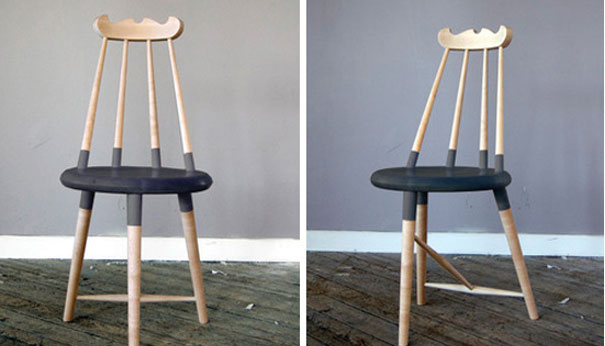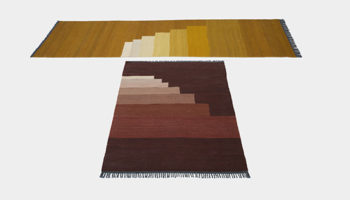Designer Profile: Live Video Interview with Stephen Burks from Readymade Projects
Though IIDEX/NeoCon Canada is some two months gone, let’s not consign the event to the dustbin of history just yet. As we recently discovered here at 3rings, there are plenty of sparkling gems of industry wisdom to be polished up a bit and placed back in the public purview. If you attended the event but missed Stephen Burks’ keynote address, do not despair: our very own Jacob Slevin has reprised the designer’s words in a brief video interview.
Burks and his company Readymade Projects is much on the industry radar of late—not only because of his pedigree of intuitive and intelligent work (such as the Parallel Shelving System for Modus or the Part series of occasional nesting tables for B&B Italia), but also because of his impassioned articulation of a new manufacture/distribution paradigm. Burks’ philosophy begins with the notion that the current model is somewhat dysfunctional. In much the same way that eaters are removed from the realities of where/how their food originates, so consumers are blissfully ignorant of the truth of the design product chain. “Everything comes from somewhere,” Burks says, and, though in the past many consumers were content to be kept out of the know, “for the first time in history, people want to be aware of how things are made.” Combine this burgeoning sentiment with a desire to get the artisan/craftsman closer to the distribution of his product and one approaches the gist of Burks’ philosophy: for simplification’s sake, let’s call it “Slow Food for Design.”
At the Readymade website, users can find a helpful visual aid for the notion—a triangle in which the “distributor,” “artisan,” and “designer” inhabit the three points, and a “not-for-profit” resides inside. The schematic quantifies Burks’ assessment that 1. Consumers are desirous of “authentic experience” or “products with soul”; 2. Artisans and craftspeople want and deserve to be recognized for their work (rather than taken out of the loop as they often are in the frequently-dehumanizing conventional distribution model); and 3. Intuitive design with locally-sourced products and a pronounced regional identity makes sense, from a financial as well as philosophical perspective.
The upshot of such innovative thinking is—in the long term—a whole sale re-invention of “business as usual,” and—in the short term—the kind of “collaborative intervention” epitomized by such products as Readymade’s Zulu wire baskets and bowls (made of telephone wire using traditional weaving techniques). The exciting and vibrant pieces are a living testament to the potential of Burks’ ideas: that we can depart from a “Euro-centric model” to not only “teach artisans in the developing world how to manufacture and distribute their own products,” but also begin to value the varied aesthetic of Asian and African cultures as a bountiful creative influence.




Leave a Reply